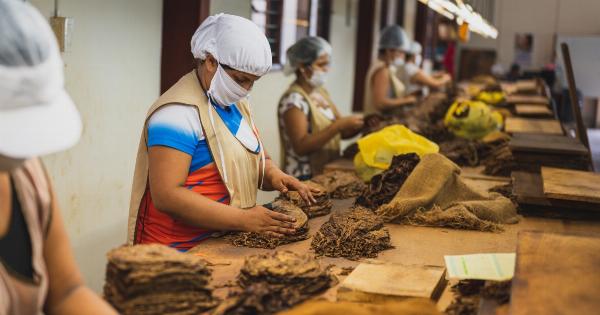When it comes to breast cancer, there are many misconceptions surrounding its genetic factors. Understanding the truth about breast cancer genetics is crucial in order to make informed decisions about prevention, screening, and treatment options.
In this article, we aim to debunk 10 common misconceptions about breast cancer genetics.
1. Only women can inherit breast cancer
Contrary to popular belief, breast cancer can also be inherited by men. While it is true that breast cancer is more common among women, men can also carry genetic mutations that increase their risk of developing the disease.
The BRCA1 and BRCA2 genes, for example, are associated with an increased risk of both breast and ovarian cancer in both genders.
2. Breast cancer is always hereditary
While some cases of breast cancer are linked to genetic mutations, the majority of breast cancer cases are not hereditary. It is estimated that only 5-10% of breast cancers are caused by inherited gene mutations.
Most cases of breast cancer are sporadic, meaning they occur due to a combination of genetic, environmental, and lifestyle factors.
3. Genetic mutations guarantee the development of breast cancer
Having a genetic mutation associated with breast cancer, such as the BRCA1 or BRCA2 gene, does not guarantee that an individual will develop the disease.
While these mutations increase the risk, many individuals with these mutations never develop breast cancer. Other factors such as age, hormone levels, and environmental exposures also play a significant role in determining whether breast cancer will develop.
4. Everyone carrying the BRCA gene will develop breast cancer
Not all individuals who carry the BRCA gene will develop breast cancer. In fact, 45-65% of women with the BRCA1 mutation and 40-60% of women with the BRCA2 mutation will develop breast cancer by the age of 70.
It is important to remember that having the gene mutation increases the risk, but it does not guarantee the development of the disease.
5. Genetic testing is necessary for everyone
Genetic testing is not necessary for everyone, as most breast cancer cases are not hereditary.
However, individuals with a strong family history of breast or ovarian cancer, a male relative with breast cancer, or an early onset of breast cancer may benefit from genetic testing. A genetic counselor can help assess the need for testing based on an individual’s personal and family history.
6. A negative genetic test guarantees no risk of breast cancer
While a negative genetic test can provide relief and peace of mind, it does not completely eliminate the risk of developing breast cancer.
There are other gene mutations not yet identified or other non-genetic factors that can contribute to the development of breast cancer. Regular breast cancer screenings and a healthy lifestyle are still important for early detection and prevention.
7. Only young women need to worry about breast cancer genetics
Although age is a significant risk factor for breast cancer, it does not mean that older women are not affected by genetics. Genetic factors can influence breast cancer risk at any age.
It is important for all women, regardless of age, to be aware of their family history and discuss it with their healthcare providers to determine the need for genetic testing or increased screening.
8. Genetic mutations can only be inherited from the mother’s side
Genetic mutations associated with breast cancer can be inherited from either the mother’s or father’s side of the family.
While it is true that some mutations are more commonly passed down through the maternal line, genetic mutations can come from either parent. It is essential to consider both sides of the family when assessing the risk of carrying a genetic mutation.
9. Breast cancer can only be caused by a single gene mutation
Breast cancer is a complex disease influenced by multiple genetic and environmental factors.
While some gene mutations, such as BRCA1 and BRCA2, are strongly associated with an increased risk of breast cancer, there are numerous other genetic variations that can contribute to the development of the disease. Additionally, interactions between genes and environmental factors play a significant role in breast cancer risk.
10. Breast cancer genetics cannot be modified
While genetic mutations cannot be altered, their impact on breast cancer risk can be modified through lifestyle choices and preventive measures.
Individuals carrying genetic mutations associated with breast cancer can take proactive steps such as undergoing regular screenings, adopting a healthy diet and exercise regimen, and discussing risk-reducing options with their healthcare providers. Awareness of genetic factors can empower individuals to make informed choices for their breast health.

























